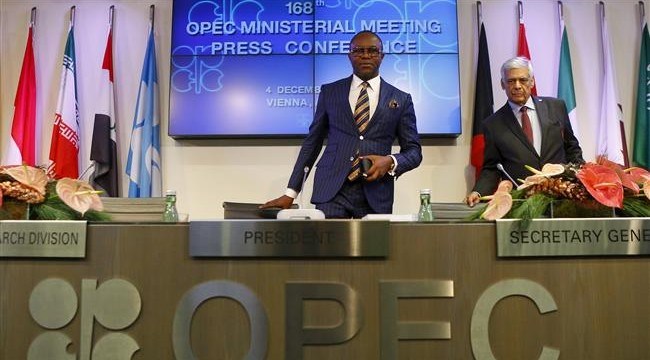
Nigeria stands to continue to benefit from an improved oil revenue as the Organization of Petroleum Exporting Countries (OPEC) decided on Thursday in Vienna to extend cuts in oil output by nine months to March 2018 to further battle a global glut of crude.
OPEC delegates said the cuts were likely to be shared again by a dozen non-members led by top oil producer Russia, which reduced output in tandem with OPEC from January.
OPEC’s cuts have helped to push oil back above $50 a barrel this year, giving a fiscal boost to producers, many of whom rely heavily on energy revenues.
Oil’s earlier price decline, which started in 2014, forced Russia and Saudi Arabia to tighten their belts and led to unrest in some producing countries, including Venezuela and Nigeria.
The price rise this year has spurred growth in the U.S. shale industry, which is not participating in the output deal, thus slowing the market’s rebalancing with global crude stocks still near record highs.
Brent crude in early trading fell 1.3 per cent to around $53 per barrel as market bulls were disappointed OPEC would not deepen the cuts or extend them by as long as 12 months.
OPEC oil ministers are, however, continuing their discussions in Vienna after three hours of talks. Non-OPEC producers were scheduled to meet OPEC later in the day.
In December, OPEC agreed its first production cuts in a decade and the first joint cuts with non-OPEC, led by Russia in 15 years.
The two sides decided to remove about 1.8 million barrels per day from the market in the first half of 2017, equal to 2 per cent of global production.
Despite the output cut, OPEC kept exports fairly stable in the first half of 2017 as its members sold oil from stocks.
The move kept global oil stockpiles near record highs, forcing OPEC first to suggest extending cuts by six months, but later proposing to prolong them by nine months and Russia offering an unusually long duration of 12 months.
“There have been suggestions (of deeper cuts), many member countries have indicated flexibility but … that won’t be necessary,” Saudi Energy Minister Khalid al-Falih said before the meeting.
He added that OPEC members Nigeria and Libya would still be excluded from cuts as their output remained curbed by unrest.
Falih also said Saudi oil exports were set to decline steeply from June, thus helping to speed up market rebalancing.
OPEC sources have said the Thursday meeting will highlight a need for long-term cooperation with non-OPEC producers.
Nigeria, Africa’s largest economy, relies on oil proceeds as its main revenue source.
The nation’s long-term reliance on oil has caused economic pain in recent years as internal problems meant the country was unable to match its historic production levels.
This proved to be a key factor in the country securing exemption from OPEC’s landmark 2016 deal to curb a global supply overhang.
The Minister of State for Petroleum, Ibe Kachikwu, had predicted before the meeting that Nigeria would get an extension.
“The indications that I have so far is that there is a willingness to extending that,” Mr. Kachikwu said early May.
“I expect we (Nigeria) will get OPEC exemption but one year from now will it be renewed? I am not too sure.
“Over and above extending, we need to continue to engage; we need to find a way to stabilise international oil price, otherwise everybody will lose out,” the minister added.
Similarly, Nigeria’s Minister of Finance, Kemi Adeosun, said, the deal gave the nation an opportunity to plan.
“We very much are benefitting from the improved oil price, you know it went as low as $28 a barrel. So the region that it is in at the moment, it gives us the ability to plan,” she said in an interview with CNBC.
“What we didn’t need was volatility, we need much more stability which the OPEC deal has given us,” the minister said.
When asked how critical it would be for the oil producing cartel to extend an output reduction deal beyond June, the minister said the “general consensus” among oil producers was stability around the $60 a barrel mark would be a necessary milestone.
“I’m confident that all the players involved know that we need stability,” Mrs. Adeosun noted.
END

Be the first to comment